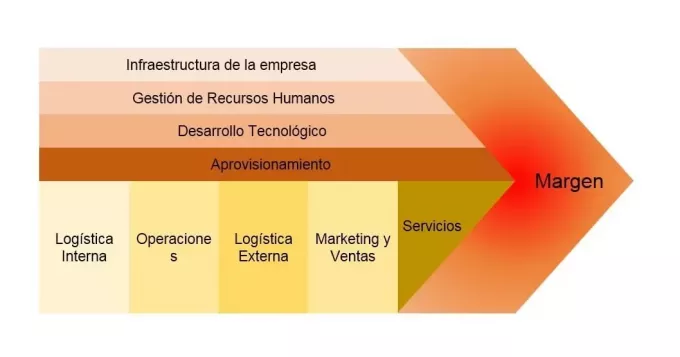In this article you will find:
Corporate Social Responsibility
Among the most interesting topics proposed and developed by the famous American economist Michael porter, the concept of corporate social responsibility. Interest in this theory by companies and experts has increased over the years, and its current importance in business management has become central.
Corporate social responsibility (CSR), which Porter also defines as corporate social responsibility (CSR), focuses on the inclusion of issues of an ethical nature within the company's strategic vision. In substance, it is about the will of large, medium and small companies to better manage the issues of social and ethical relevance within its activity and in relation to the segments of interest, beyond the obligation to follow the laws current. For example, many companies include in their annual plans the risks related to the social sustainability
Advertisements
Corporate social responsibility It is a vision that, in general terms, goes back to very old roots in Western economics, but it is considered that the first theorist in the sense of strict of a theory related to corporate social responsibility was Robert Edward Freeman in his essay Strategic Management: a Stakeholder Approach (London, 1984). However, experts agree that Porter's contribution was and continues to be fundamental to its current concept and development, especially to from the founding, together with another economist, Mark Kramer, of two non-commercial entities that collect significant resources for financial ethics and provide advice for the development of business strategies: the CEP (Center for Effective Philanthropy) and the FSG, in the year 2000.

Advertisements
Corporate social responsibility according to Porter and Kramer
According to the theories developed by Porter and Kramer, companies can achieve higher returns by focusing their plans on socially useful actions: The coincidence between social value and economic value is said shared value, also known by its name in English, Shared Value, a concept that Porter and Kramer takes a careful look in their essay Strategy & Society: The Link Between Competitive Advantage and Corporate Social Responsibility. the nexus between competitive advantage and social responsibility, 2006) and in another important and more recent text, Creating Shared Value shared, 2011).
The different business realities have three basic ways to create shared value, that is:
Advertisements
- Looking for novel ways of conceiving products and services
- Through a new definition of productivity within the value chain
Advertisements
- Building environmental and social support structures in relation to the territorial sectors to which they belong
According to Porter and Kramer, in recent years the business world has experienced an all-time low when it comes to trust granted by consumers, since the idea that companies benefit from undesirable social situations has become very popular. Public opinion considers the business world the main cause of serious economic, social and environmental problems. Examples of this situation are fast food companies like McDonald’s that are considered responsible for childhood obesity, or the media campaign against Nike, at the beginning of the 1990s, generated by the discovery of some illegal establishments in Indonesia in which children under age.
Advertisements
This type of undesirable situation is due to the inability of many companies to measure themselves with new types creation of value, becoming trapped in concepts that have already been overcome by the history of economy. Companies must focus their interest mainly on the long term: if they do not do so, they will not take into account the well-being of their customers, the decrease in the natural resources essential for the development of their own business activities, the difficulties that put at risk the survival of their suppliers and of the society of consumers to which their customers are directed. products.
Creating shared value in fact means overcoming this barrier that prevents companies from correctly evaluating their interests in the long term, to generate value economic in ways such that this value also ensures social value, to guarantee that the conditions are perpetuated to generate new value not only in the short term. term.
On more occasions, Porter and Kramer refer as a company example to the policies of Nestlé, a important multinational that nevertheless leaves a good margin of space to the creation of value shared. For example, the company worried about reorganizing its coffee harvesting processes, since many growers belonged to depressed areas and were at risk of not being able to meet their obligations in the middle term. Nestlé has provided new techniques and access to quality material such as pesticides, hybrids, fertilizers, promoting a policy that rewards growers who manage to produce coffee beans from Best Quality. In this way, the social condition of its suppliers has notably improved, but it has also ensured an excellent possibility to continue generating value in the long term.
Another circumstance in which Porter and Kramer refer to Nestlé are policies related to the water, which in contrast to the previous example shows a limit to some shared value policies. Nestlé, as the world's leading producer of bottled water, is considered a major player in the debate regarding access to drinking water, although its real role in the economy of the sector is minimal, if we consider that 70% of the availability is used for agricultural purposes, and that the real impact of Nestlé in the branch corresponds to one 0,0008%. However, the business nature of a multinational in this case makes its relevance more visible in the face of other realities that remain.
Hence, Porter and Kramer criticize companies that, as soon as they become aware of the importance of corporate social responsibility many times they do not know exactly how to act, and are limited to actions of wide visibility such as reports or generic policies that can reduce or reduce criticism from consumers and yet they are not enough to create a real shared value according to the key concepts of social responsibility corporate The great challenge that companies will have to face in the future will be precisely to evaluate strategies and action plans capable of creating real shared value.


